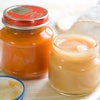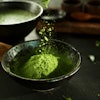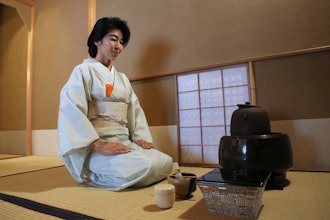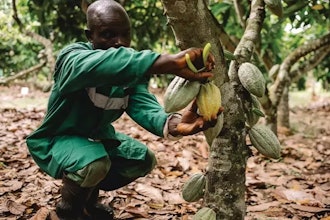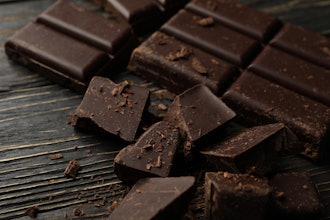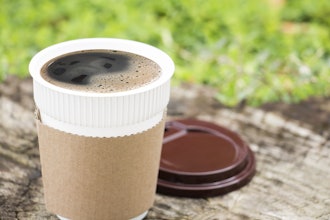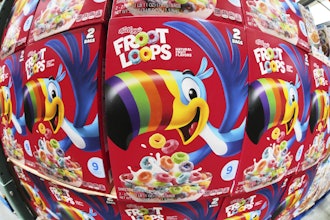HANOI, Vietnam (AP) — Jack Nguyen had sold 20 of his 30 containers of imported American grapes when fresh rumors hit the Internet and state-run media: Chinese fruit on sale in Vietnam might look good, but it contains deadly levels of preservatives and pesticides. Shoppers quickly stopped buying imported fruit altogether, believing it all tainted or falsely labeled. The last 10 containers rotted.
While fears about the safety of Chinese food products are often well founded, in Vietnam they are so tangled up with anti-Chinese sentiment it is hard to tell where one begins and the other ends. More than 1,000 years of occupation, a bloody border war in 1979 and renewed assertiveness by China in pushing territorial claims in the South China Sea mean that tales of Chinese perfidy find fertile soil in which to grow.
Vietnam's authoritarian government tries to stop direct criticism of China, or discussion of its relationship with Beijing, because it is vulnerable to charges by nationalists and democracy activists that it lacks the guts to stand up to its fellow Communist country. As a result, anger at its giant northern neighbor China is increasingly showing up in consumer behavior.
Nguyen says sales at his firm, one of the largest fruit importers in the country, were down to $6 million last year from $11 million in 2011. While he and others in the trade say Vietnam's economic slowdown is partly to blame, he complains the constant media reports of toxic fruit are strangling businesses, even for those like him who no longer import from China.
"It's all about how they can sell more newspapers. Nowadays if you write an article about Chinese products, you immediately get millions of hits online," he said by phone from Australia, where he was buying up part of that country's grape harvest. "We lost a lot of money just because someone was writing something fancy."
Chinese companies selling computer games and Internet chat programs have faced online boycotts from anti-China activists. In December, Paulo Thanh Nguyen launched a website called "No China Shop", which sells only goods made in Vietnam — children's clothes, shoes and vegetables — and offers to source others. He says sales are good, but his decision to launch the business was as much about harnessing and spreading anger against China as it was about making money.
"Chinese made products are killing Vietnam's economy and Vietnam could become China's economic slave," he said. "I want to lend a hand in preventing this."
Territorial tensions have been finding their way into other markets in the region.
An ugly spat between China and Japan over contested islands late last year led to a drop in demand for Japanese cars, makeup and consumer electronic devices by Chinese consumers. Nervous Japanese investors are not pulling back on China, but are stepping up investments elsewhere in Asia as a way of hedging against more turbulence.
A restaurant in Beijing recently put up a sign saying that Vietnamese, Japanese and Filipinos — whose government also opposes the Chinese claims — and dogs were not welcome. The owner, who gave a single name of Wang, said he put it up to "release my anger" over the island dispute but took it down after fielding so many calls from reporters.
Given China's size, few countries in the region could contemplate locking economic horns with it for long. It remains Vietnam's largest trading partner, and that will not change anytime soon, regardless of the bad press its fruits get.
Business between the two countries has increased since they normalized relations in 1991 following a frontier war. Trade between the two reached $35.7 billion last year, more than triple the figure back in 2006, according to government figures. Cheap Chinese goods dominate markets. Many of its factories that make goods for exports must first import raw materials from China.
Fruit and vegetable imports from China are especially vulnerable to consumer backlash because of that country's well-documented instances of food tampering, overuse of pesticides and lax regulations on everything from baby milk, dried fruit to meat products. Moreover, Vietnam's recently minted middle class, like their brethren elsewhere, are increasingly concerned about the provenance and quality of what they put on their plates in general.
China has emerged as one of the world's leading exporters of fruit and vegetables, and is increasingly taking market share from U.S. producers in Asian markets. It grows more apples than any other country. There are no figures on how much of the crop Vietnam imports. Chinese fruit is often cheaper than Vietnamese, and offers more variety.
Nguyen Quang Bach, a customs official at Tan Thanh, one of the major entry points for Chinese goods into Vietnam, said last year daily imports peaked at 2,100 metric tons of fruit a day in the run up to the Lunar New Year, when demand for fruits is at its highest. He said this year the busiest day saw half that cross the border.
"The information (about alleged dangers) has affected people's psychology," he said. "Consumers don't eat Chinese fruits and importers can't sell them."
The media stories on Chinese food scares are laced with rumor and statistics as alarming as they are dubious. The Pioneer, one of the country's largest circulation papers, repeated rumors about leeches in milk and watermelons imported from China. It went on to report on the case of a woman from northern Vietnam who was admitted into a hospital after suffering from stomach ache. The doctor apparently fainted when he saw the leeches squirming inside her stomach.
Hoang Trung, a deputy director at the agriculture ministry, said tests found excessive levels of pesticide in four samples of Chinese grapes, apricots and pomegranate in the first 8 months of last year. Since then, random tests at border checkpoints and on Chinese and Vietnamese fruits at major fruits markets came out clean.
"There are no grounds for the people to panic," he said.
Few people seem to be listening, a reflection perhaps of a lack of trust in Vietnamese government authorities.
At Hanoi's Long Bien market on the banks of the city's Red River, traders selling Vietnamese fruits occupy one half, with those hawking imports on the other. Around half of the produce at the market are trucked in from China, arriving in the city in the middle of the night. They disparage each other's products, but there doesn't appear to be any resentment.
"The Chinese are wicked, and their goods should be banned," said Xuan, who was sitting in front a stall selling tiny oranges from Southern Vietnam. "They are dangerous."
Those selling Chinese fruits note people are still buying the fruit, albeit in smaller quantities. They suggested Vietnamese food was as likely to be as toxic as Chinese, and dismissed the stories of dangerous fruit as unfounded rumors.
One suggested that the campaign was being orchestrated by the Vietnamese fruit producers as a form of protectionism. Nguyen, the fruit importer, said that didn't make sense because the whole industry was suffering as a result.
"If people truly boycott Chinese food, what else can they buy?" said Dung, who along with his wife was selling tiny Chinese, green apples, which he first told a reporter were from central Vietnam. "In reality, local fruit can't meet demand."

